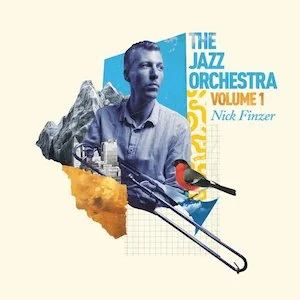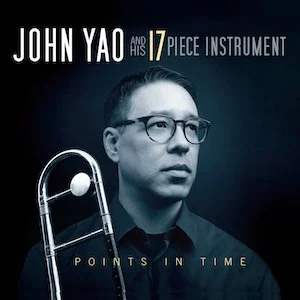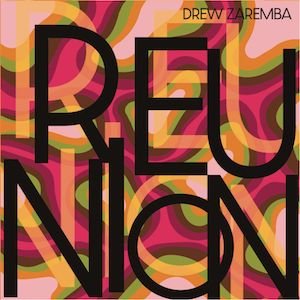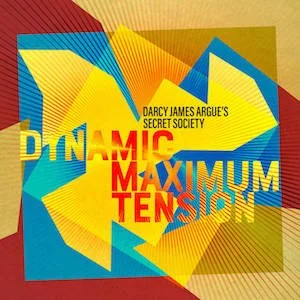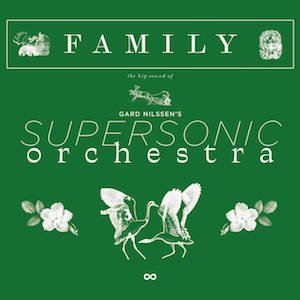Label: Outside in Music, 2025
Personnel - Saxophones: Michael Thomas (alto); Jordan Pettay (alto); Lucas Pino (tenor); Evan Harris (tenor); Tony Lustig (baritone); Trumpets: Augie Haas, Anthony Hervey, Nadje Noordhuis, Chloe Rowlands; Trombones: Nick Finzer, Rob Edwards, James Burton III, Sara Jacovino, Altin Sencalar; Rhythm Section: Alex Wintz (guitar), Glenn Zaleski (piano), Dave Baron (bass), Jimmy Macbride (drums).
Nick Finzer is a creative trombonist and composer with refined taste and sinuous melodic instincts. Captured in a single-day session, The Jazz Orchestra Vol. 1 breathes new life into four of his most emblematic, previously recorded compositions alongside fresh reinventions of two J.J. Johnson classics. Inspired by the late trombonist and the big band legacies of Duke Ellington, Finzer assembled an 18-piece ensemble that includes his working sextet—the full rhythm section plus tenorist Lucas Pino. The album pays sincere tribute to the rich history of the jazz orchestra.
Bursting with ardent hardbop devotion, Johnson’s “Say When” thrives on Finzer’s powerful declamation, his trombone lines cutting with melodic instinct and authority. Playful horn staccatos punch through neatly arranged hooks, while a buoyant swing underpins Jordan Pettay’s spirited alto solo. Johnson first recorded this piece with his big band in 1966.
Also by Johnson, “Lament” unfolds as a lyrical, expansive ballad of epic dimension that recalls Gil Evans’ orchestral maneuvers, one of Finzer’s touchstones. Those spectacular Evans-like timbres reappear in “The Guru”, originally heard on Cast of Characters (2020). With its rhythmic and harmonic brilliance, the piece weaves a mysterious mood through probing collisions and lush tapestries, highlighted by solos from trumpeter Anthony Hervey and Finzer himself. The colorful harmonic tapestries are offered by guitarist Alex Wintz and pianist Glenn Zaleski, respectively.
Another highlight is “We The People”, the dynamic opener from Hear & Now (2017), here reimagined by Jack Courtwright, Finzer’s notable graduate student at the University of North Texas. Freedom and collective consciousness permeate the music, magnified by inventive solos from trumpeter Chloe Rowlands, Pino, Wintz, and drummer Jimmy Macbride. That conversational fluidity of the improvisers continues on the closer, “Just Passed the Horizon”, where Wintz leads into Tony Lustig’s exuberant baritone statement and an invigorating collective jam that bursts with tonal color.
The Jazz Orchestra Vol. 1 is a beautifully crafted album that brings Finzer’s A-game to the big band format. His dedication yields fresh surprises at every turn, and we never get tired of this unflagging ‘in the pocket’ drive, always carried out with a modern sensibility.
Favorite Tracks:
01 - Say When ► 02 - The Guru ► 04 - We The People

